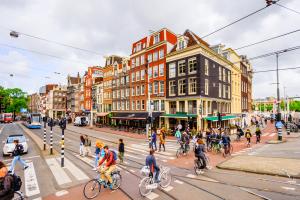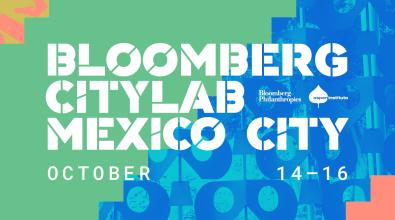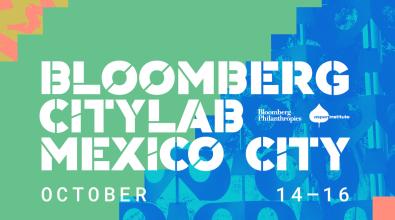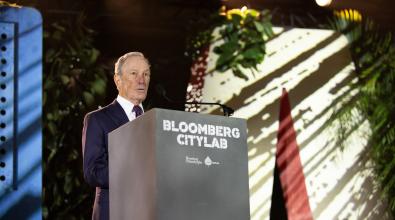As global challenges mount, city innovators to share solutions

Somehow, after two unthinkable years, the world’s challenges have only grown more complex in 2022. A devastating war in Ukraine is sparking refugee, food, and energy crises. Climate change is fueling deadly heat waves, droughts, and superstorms. Institutions of democracy are under attack as politics become ever more polarized. Meanwhile, a pandemic much of the world has moved on from continues to roil economies across the globe and kill 1,800 people a day.
Next month, city leaders from around the world will gather in Amsterdam, not to dwell on the depth of these problems but to share ideas and bold thinking on how to address them. The Bloomberg CityLab summit, from October 9 to 11, will shine a spotlight on the role of local leadership in tackling the world’s biggest challenges, bringing together global mayors alongside prominent city innovators, business leaders, urban experts, artists, and activists to discuss and discover solutions they can replicate and adapt.
“CityLab this year visits one of the most creative cities in the world to elevate what’s new, learn from what’s working, and bring together a global community of public innovators,” says James Anderson, who leads the Government Innovation program at Bloomberg Philanthropies. “Cities are beacons in these challenging times and we look forward to bringing together many of the most inspiring city leaders, artists, thinkers, and doers once again.”
Speakers at CityLab include Michael R. Bloomberg, three-term mayor of New York City and founder of Bloomberg LP and Bloomberg Philanthropies; Henk Ovink, the United Nations’ Special Envoy for Water; Piotr Cywinski, director of the Auschwitz-Birkenau State Museum; and Victor Peneda, founder and president of World Enabled. More than 40 mayors will be in attendance, including majors from Amsterdam, Bogotá, Kyiv, Mexico City, and Washington, D.C.
Those not attending CityLab can watch a livestream of all mainstage programming here.
A big focus at every CityLab summit—and especially this one, the first to be held in person since 2019—is to lift up and connect the civil servants who are using data, resident engagement, and collaboration to drive innovation in local governments around the world. More than 90 chief innovation officers will convene at CityLab, alongside city hall peers leading digital transformation, data efforts, public health initiatives, and more.
One theme in these conversations will be establishing trust and maintaining truth in a time of constant upheaval. That’s something Baltimore Chief Data Officer Justin Elszasz has been thinking about, particularly as COVID fades further into the rearview mirror. Elszasz will be speaking on a panel of chief data officers from the U.S. and U.K.
COVID showed how critical data is to emergency response, Elszasz says—both for leaders to make better decisions about where to target resources, and for residents to understand risks and decide how to live their lives. “That’s why everyone was hooked on data dashboards at the beginning of COVID,” he says. His key lesson going forward? Stay nimble and ready to marshal the right data as new emergencies come up.
[Read: Mayors say using data during pandemic helped them save lives.]
“There are more and more crises every day,” Elszasz says, noting how a recent water contamination episode in Baltimore sparked a huge public demand for water quality data. “Climate change is exacerbating floods and heat waves, and all these things are going to continue to pop up more frequently. That emergency response increasingly has to be seen as part of the chief data officer’s job.”
That’s something Marta Segura can identify with. As the first ever Chief Heat Officer for the city of Los Angeles, Segura’s job is to prepare her city for a hotter future, and to coordinate resources when heat waves do strike. She’ll be speaking at CityLab on a panel with other city chief heat officers—a new role in local government that clearly reflects the times we’re living in.
Segura started the job in June. Just eight weeks later, she was confronted with her first major heat wave. It was supposed to last four days. It went on for two weeks, with temperatures occasionally topping 110 degrees Fahrenheit (43 degrees Celsius). Segura sees collaboration as critical in her role, and she worked closely with the fire, emergency management, aging, disabilities, and other departments to open cooling and hydration centers at libraries and recreation centers across the city.
Recognizing that heat waves like this are now possible from June to November in L.A., Segura is building new partnerships with restaurants, pools, and water parks to offer Angelenos free access during heat waves. “We’re going to keep expanding these partnerships,” Segura says, “so people know where they can get refuge from the sun.” She’s also doubling down on resident engagement, leveraging both media attention during the heatwave and grassroots outreach to educate the public about the health dangers of extreme heat. “You could make many investments as a city, “ she says, but it does no good “if the community doesn’t know about it.”
Resident engagement, and finding new and more powerful ways to do it, is high on Sean Audain’s agenda. Audain is the innovation lead for the Wellington, New Zealand, City Council. He and his colleagues are using a virtual simulation of the city, known as a “digital twin,” to deepen the civic dialogue about how to plan for climate risks ahead. Audain is speaking on a CityLab panel about ways cities are bringing virtual reality and the “metaverse” into urban planning, part of an emphasis throughout the summit on how to creatively use digital tools to respond to the needs of residents.
Wellington’s digital twin allows planners to see future scenarios such as sea-level rise in a tangible way. Wellington’s plans to scale up the digital twin and use it to engage residents on choices ahead recently won $1 million in the Bloomberg Philanthropies Global Mayors Challenge.
[Read: How cities are moving into the ‘metaverse’ and beyond]
The digital twin “makes invisible things visible,” Audain says. “It’s very hard to see the future. But when you look at sea level and show what the scientific projects actually mean for a city at the edge of the world in the middle of the biggest ocean, you can start to have the conversation that it’s not just a matter of people getting their feet wet on the wharf. It’s about water flowing backwards up the pipes. That’s the real threat to us is the infrastructure system bankrupting the city.”
At the moment, Audain says, the digital twin is more useful for decision makers. But ultimately, its power to communicate to the public what the future looks like and choices ahead will be more potent. “Climate change is a big challenge to democracy, because of the need to sustain mandates and decision making over very long periods of time,” Audain says. “That’s going to raise the importance of transparency in government to a new level. That’s our driving force. It’s not about being a data-driven city. It’s about being an informed democracy.”


